YSK-600A四柱油压机机械结构设计(含CAD零件图装配图)
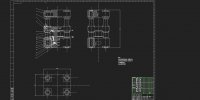
资料介绍:
YSK-600A四柱油压机机械结构设计(含CAD零件图装配图)(任务书,开题报告,设计说明书12000字,CAD图5张)
摘 要
液压机是利用帕斯卡原理,将液体作为介质来传递能量的工业设备,具有执行件结构简单,工作平稳,可产生很大工作压力等优点。而四柱式液压机属于液压机中的一种,多用于金属,橡胶,木材等材料的压制成形等工艺。在工业生产中有着广泛的应用。本文介绍了一种传统的四柱式液压机的设计,重在讲述液压机的原理以及设计思路,让大家更加了解液压机从而进一步对液压机进行设计方案改进。
YSK-600A是一款公称力为6000KN力的压力机,我们查阅资料,根据液压机的材料以及压力,选取适合的电机作为驱动,按照工作压力以及行程,设计液压缸的参数,按照受力,设计出整体框架以及上下横梁,活动横梁的参数,并根据工艺要求设计出法兰,轴套等连接件,最终装配成一台完整的液压机设备。本文主要采用的材料力学的分析方法,根据各个零部件的受力情况,画出弯矩图,判断危险截面并计算危险截面的最大弯矩。并根据公式计算挠度。从而校核材料的刚度。材料的强度根据受力点所受载荷,计算出该受力点的应力,若应力值小于许用应力,则强度满足要求。当强度和刚度同时都满足要求时,该设计合理。由于三个横梁的体型较大,需对中间部位进行挖空并设立加强筋板,这时材料的许用应力应当适当较低。实验表明,该结构所计算出的应力载荷略小于实际载荷,故该结构同样适合用材料力学的方法设计分析。
[资料来源:http://www.doc163.com]
关键词:四柱液压机;机械结构;原理设计
Abstract
Hydraulic press is made of PASCAL principle,It.regards the liquid as a mediu to transfer energy.Including structure simple, smooth working,big pressure and other advantages. And the four-column hydraulic press belongs to a hydraulic press, used for metal, rubber, wood and other materials such as pressing forming process. It is widely used in industrial production. This paper introduces the design of a traditional four-column hydraulic press, focusing on the principle of the hydraulic press and design ideas, so that we know more about the hydraulic press to further improve the design of the hydraulic press.
YSK – 600a is a hydraulic press machine,which nominal pressure is 6000 KN force of the press,.We consult the literature,.Selecting suitable motor as drive ,according to the material and pressure of hydraulic press. Design the parameters of the hydraulic cylinder according to the working pressure and stroke.according to the force, Designing the overall frame and the upper and lower beam, the parameters of the activity crossbeam according to the technological requirements ,And designing the flange, shaft sleeve, etc fittings, final assembly into a complete hydraulic press equipments.In this paper, the main method of material mechanics analysis, according to the force of each part, draw the bending moment diagram, judge the dangerous section and calculate the maximum bending moment of the dangerous section. And calculate the deflection according to the formula. Thus checking the stiffness of the material. The strength of the material is calculated according to the load at the stress point. If the stress value is less than the allowable stress, the strength meets the requirements. The design is reasonable when both strength and stiffness meet the requirements. Due to the large size of the three beams, it is necessary to hollow out the middle part and set up reinforcing steel plate, at this time, the allowable stress of the material should be appropriately low. The experimental results show that the calculated stress load of the structure is slightly less than the actual load, so the structure is also suitable for material mechanics design and analysis.
[资料来源:http://www.doc163.com]
Key words:Four-column hydraulic press; Mechanical structure; The principle of design.
横梁作为液压机的本体部分,承载着液压机大部分受力,其材料使用量也最多,,故历年来对横梁整体结构的优化设计也逐渐成为热门研究方向,为减轻箱体的重量,我们将横梁设计成为箱体结构,并添加加强筋板,在减轻其重量的同时能够保证其强度和刚度,降低局部应力。
本次设计液压机具体参数如下:
YSK-600A四柱式油压机主要参数
公称压力600Tonf
工作滑块最大行程160mm
工作区开口高度600mm
工作滑块速度快进110mm/s
回程 110mm/s
工作面有效尺寸左右750mm
前后750mm
工作面距地面高度1320mm
退料缸最大顶出力10kg/f
退料缸最大顶出行程20mm
液压系统压力23MPa
电机功率22kw
机器外形尺寸左右1768mm
前后1350mm
高度2120mm
[来源:http://Doc163.com]
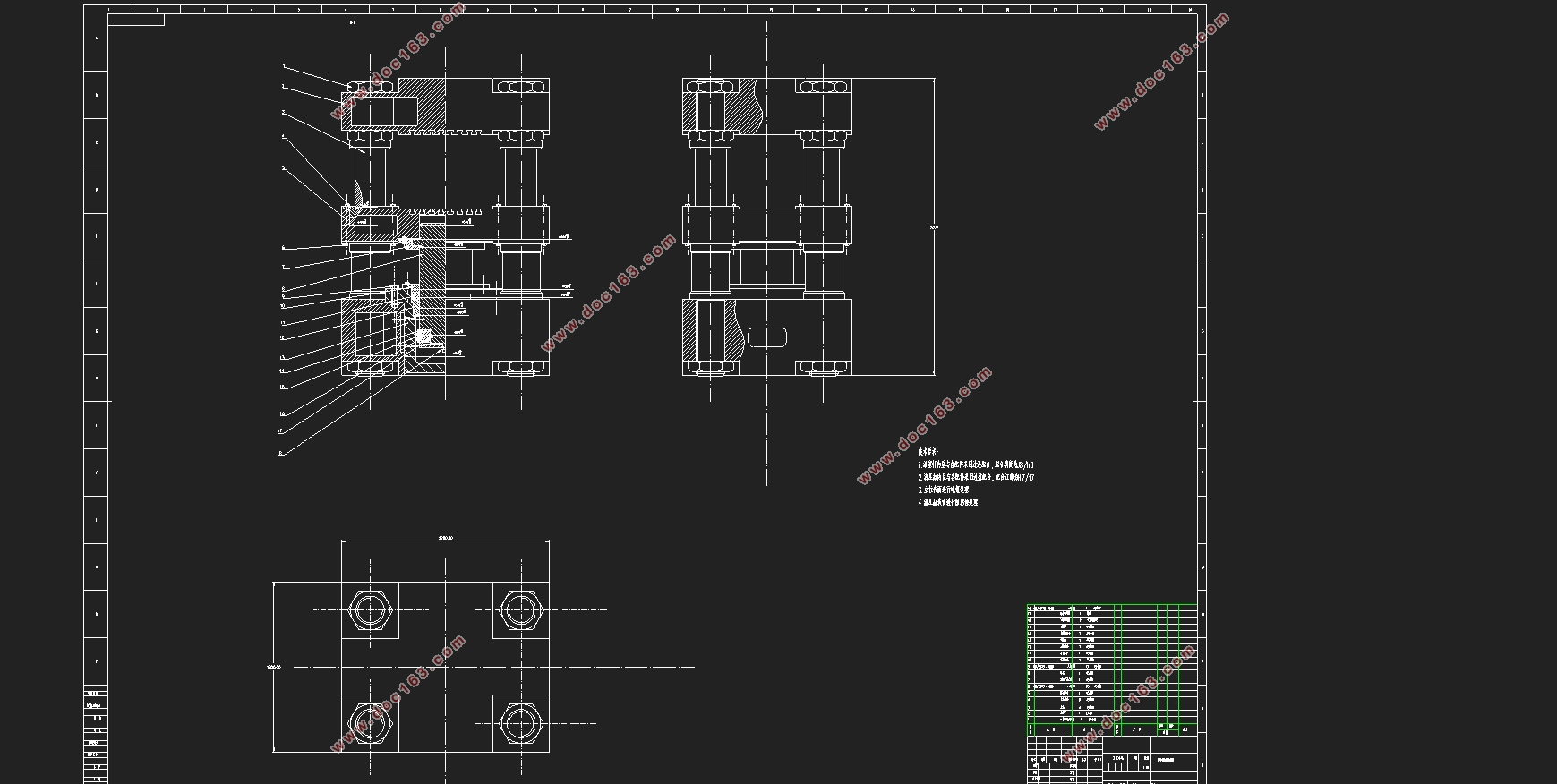
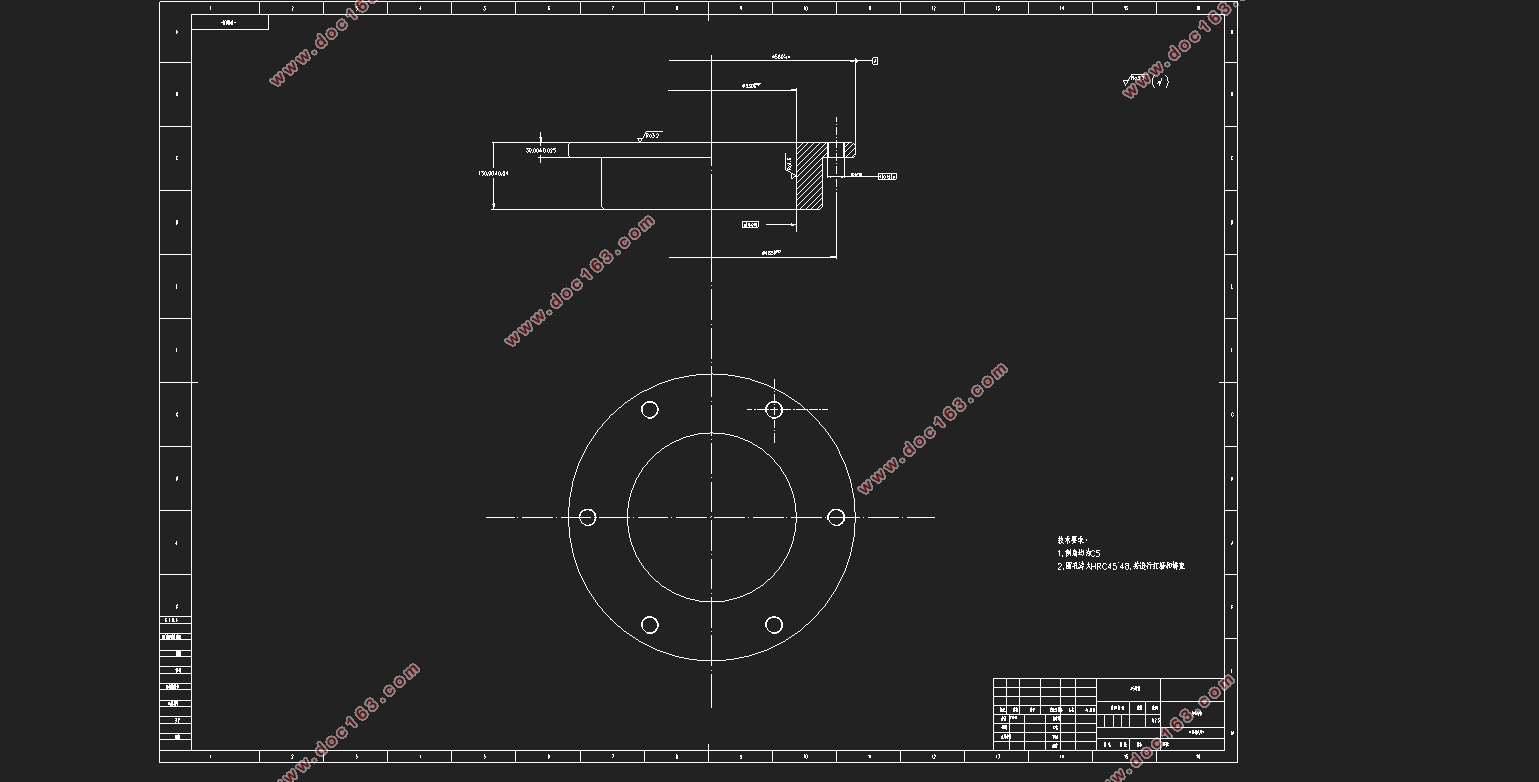
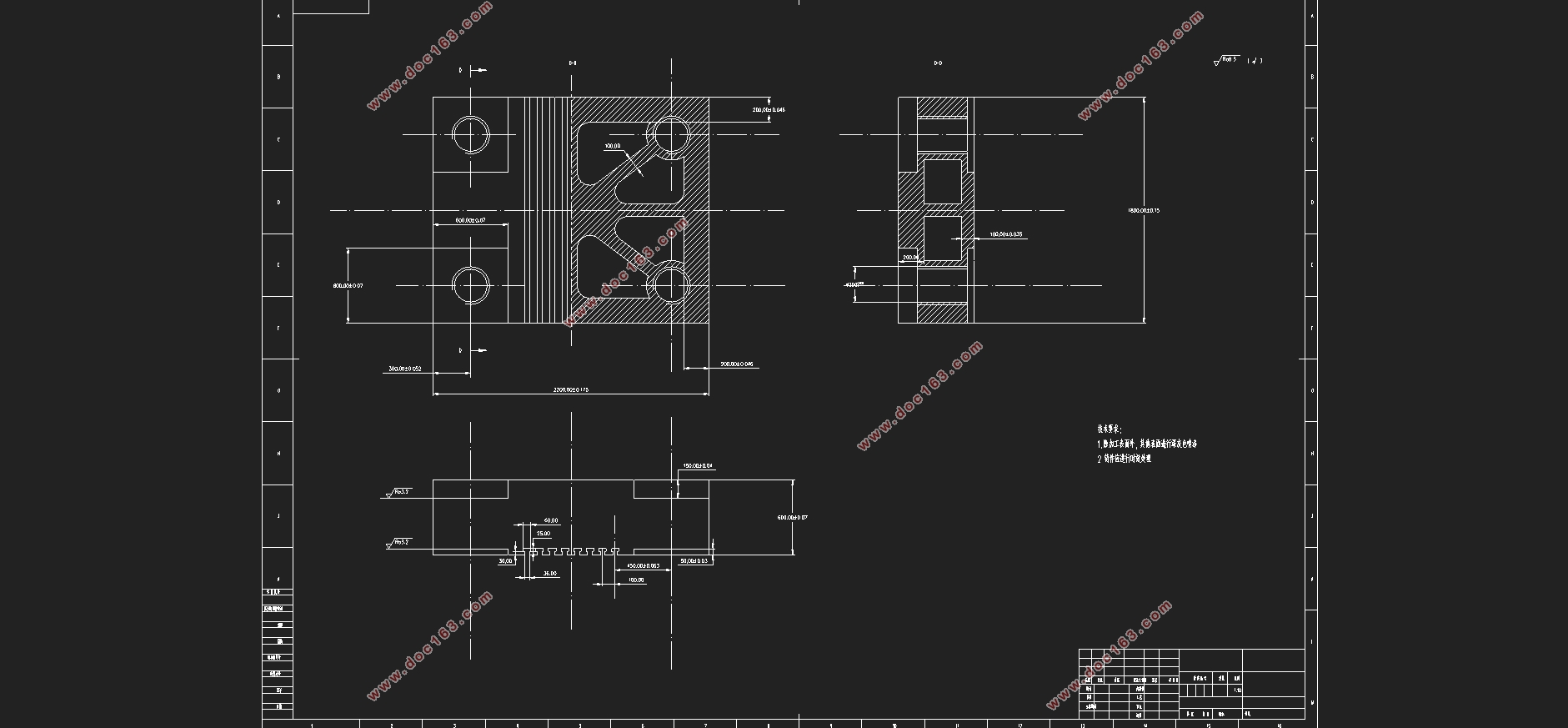
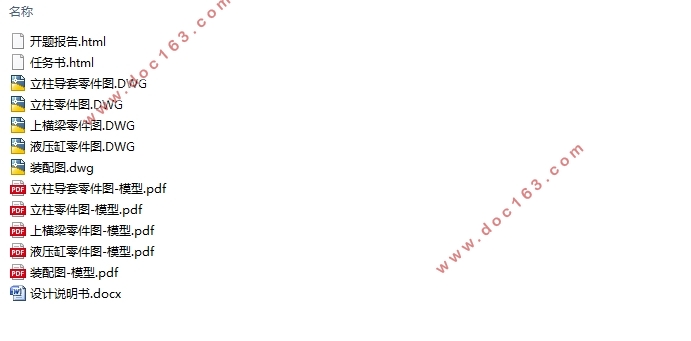
摘 要 3
[资料来源:http://doc163.com]
Abstract 4
第1章 绪论 7
1.1研究背景 7
1.2国内外发展过程 7
1.2.1国内外液压机发展历程 7
1.2.2 液压机的发展走向 8
1.2.3液压机的设计方法 8
第2章 液压缸及配件的设计和校核 10
2.1引言 10
2.2液压缸的设计计算. 10
2.2.1液压缸主参数设计计算 10
2.2.1.1活塞杆直径设计计算 11
2.2.1.2压力及流量的计算 11
2.2.1.3驱动方式的选择 12
2.2.2.壁厚及外径的设计校核 12
2.2.2.1壁厚及外径的设计 12
2.2.2.2缸筒壁厚设计及校核 12
2.2.2.3缸底部分的设计及校核 13
2.2.2.4缸体法兰处强度校核 13
2.3螺纹连接处强度校核 14
2.3.1缸体法兰与横梁螺栓连接部分 14 [资料来源:https://www.doc163.com]
2.3.2压盖部分螺钉强度校核 15
2.4活塞部分的设计 15
2.4.1活塞的设计 15
2.4.2活塞与活塞杆的连接 15
2.4.3活塞的尺寸精度 15
2.4.4活塞杆以及螺纹规格 16
2.4.5活塞杆的设计 16
2.5密封件的设计 16
2.5.1活塞处的密封设计 16
2.5.2活塞杆处的密封设计 17
第3章 横梁及配件的设计和校核 17
3.1引言 17
3.2 液压机的布局 18
3.2.1四柱液压机的选型 18
3.2.2 四柱液压机的布局 18
3.2.2.1 四柱式液压机的整体布局 18
3.2.2.2上横梁的布局 19
3.2.2.3活动横梁的布局 19
3.2.2.4下横梁的布局 20
3.3横梁的强度与刚度计算 21
3.3.1下横梁的设计计算 21
[资料来源:https://www.doc163.com]
3.3.1.1概述 21
3.3.1.2 下横梁的设计计算 21
3.3.2活动横梁的设计校核 23
3.3.3上横梁的设计校核 24
第4章 立柱及配件的设计计算 24
4.1引言 24
4.2立柱及导套的设计计算 25
4.2.1立柱设计参数 25
4.2.2中心载荷应力 26
4.2.3疲劳强度核算 26
4.3立柱的连接形式, 26
4.4导套的设计 27
4.4.1导套的作用 27
4.4.2导套的结构设计 27
[来源:http://Doc163.com]
下一篇:DTA-2型太阳能跟踪驱动装置设计(含CAD零件图装配图)
